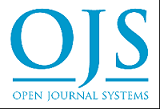Evaluation of the supplementary feeding programme targeted at malnourished toddlers in Prabumulih City, Indonesia
DOI:
https://doi.org/10.33024/minh.v7i4.288Keywords:
Evaluation, Indonesia, Stunting, Supplementary Feeding Program, ToddlersAbstract
Background: The nutritional status of children under the age of five is one of the effective health achievement measures in the SDGs. Stunting is a crucial national issue that requires attention in Indonesia, given its significant impact on the potential and quality of human resources. According to data from the Prabumulih City Health Office in 2023, Pasar Health Center has the highest number of stunted children, accounting for 24 out of 90 stunted toddlers in the city. One of the Ministry of Health's strategies to combat stunting in Indonesia is to address the issue through nutritional improvement programs tailored for toddlers, focusing specifically on underweight children.
Purpose: to evaluate the SFP for underweight toddlers using a systems approach (input, process, output).
Method: This study was a qualitative study. The informants were selected using consecutive technique sampling, included the Health Center's Head, the Person in Charge of Nutrition, the MCH Midwife, Integrated Service Post Cadres, mothers of the targeted toddlers, and the Head of the Health Office's Public Health Division.
Results: The SFP has been well-implemented, several obstacles exist in the input and process variables. These include lack of funding for cooking utensils from the central office, insufficient planning of food menus that account for toddler allergies, weather-related issues during the rainy season hindering cadres in food distribution, consumption of SFP by other family members, and tardiness of the targeted toddlers' mothers.
Conclusion: The Public Health Center should include fostering open communication with parents to discuss toddler allergies, encouraging parental involvement in monitoring and recording children's weight, enhancing supervision of program implementation, fostering creativity and collaboration with available resources, and strengthening community collaboration to establish cross-sector cooperation for additional support and resources.
Downloads
Published
How to Cite
Issue
Section
License
Copyright (c) 2024 Malahayati International Journal of Nursing and Health Science

This work is licensed under a Creative Commons Attribution-ShareAlike 4.0 International License.









